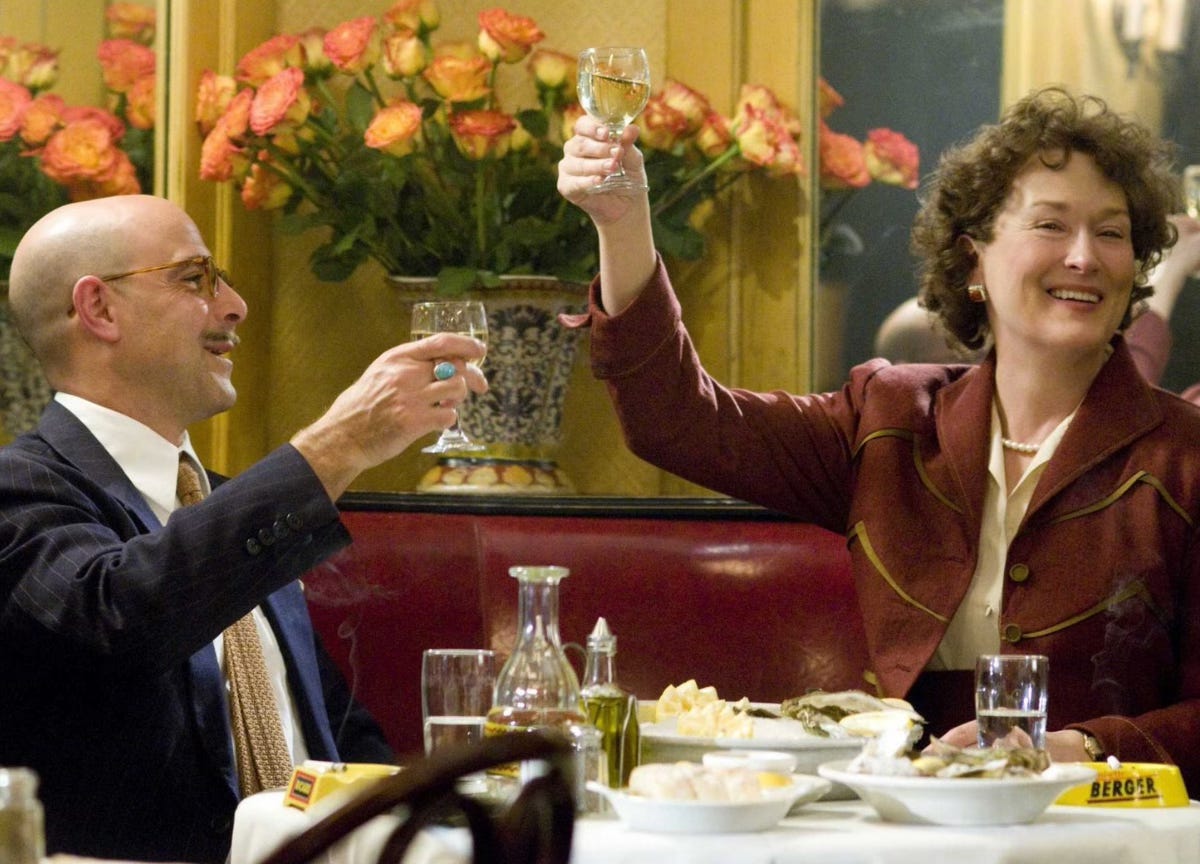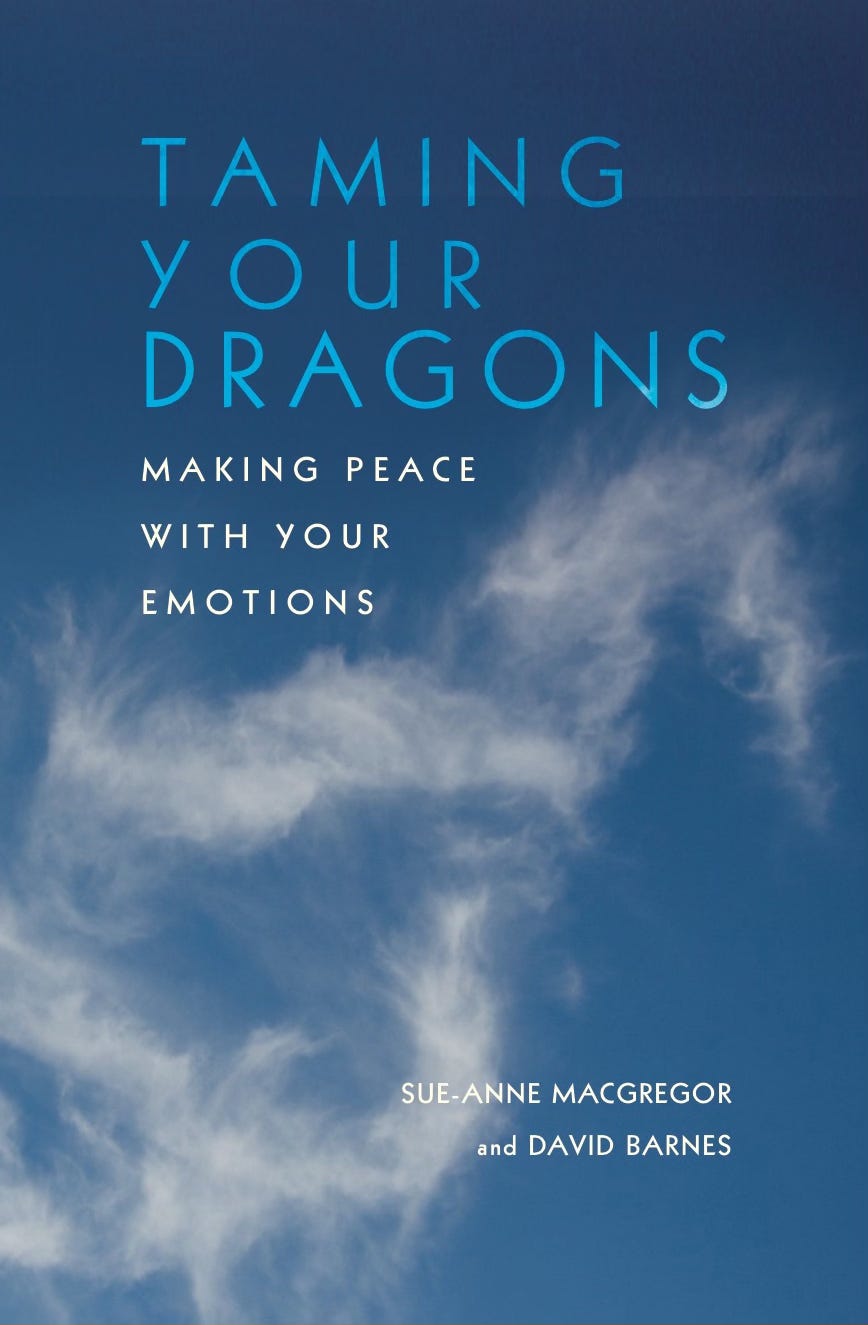How Do You Stay In Expectancy and Achieve Your Goals?
Excerpt from Taming Your Dragons: Making Peace With Your Emotions
Peace Overtures Today is a weekly newsletter dedicated to guiding individuals on their personal quest for inner peace. Each week, I share a movie that helped me discover balance. It’s a process of awareness and healing that leads to sparks of joy. I’m sincerely grateful to have you here with me.
Creating something new can be challenging and all-consuming, but it doesn't have to be. In a previous post, I discussed the difference between expectation and expectancy. I’ve tried both methods and I can assure you that remaining in expectancy is way more powerful and easier. Whether you're starting a business, writing a book, or, for my fellow writers, building a successful Substack page, the creative process thrives in a state of expectancy. When you're in expectation, it can require significant determination and true grit to keep pushing forward, making it feel difficult and full of struggle. But it doesn't have to be that way. So, how do you stay in a state of expectancy when creating anything? Hopefully, this excerpt from our book and the included AMP session can provide some clues and inspiration.
Excerpt from Taming Your Dragons: Making Peace With Your Emotions.
How Do You Stay In Expectancy and Achieve Your Goals?
By now you may be thinking, “Oh great, so now I stay in expectancy and I’ll never get anything done – you’ve got to be kidding!” The simple answer is: Be clear on your intent, stay open to all possibilities, and be curious. Life changes come at us so quickly sometimes that we get disoriented and forget we’ve fallen back into expectation.When you recognize that the traits of expectation have returned, remember that you’re already moving in the right direction.
Now what do you do? Start focusing on the wins in your life, big or small. Failures are just stepping-stones.
In the movie Julie & Julia (2009), we see examples of how to stay in expectancy. In the beginning of the movie, Julie Powell is rattled because all her friends are succeeding and she feels like a failure. She has an unpublished book and hasn’t figured out how to make a living with it. While she’s discussing her feelings with her husband, she makes amazing meals that both of them enjoy. When her husband suggests that she write about food, Julie shows us how to be open and curious about this idea. Inspiration hits her quickly, and she decides to write about Julia Childs’ cookbook. There was little to no resistance in her decision. She loved to cook, she didn’t second-guess herself, and she stayed open. She plays with the idea, and we get to enjoy watching her process. Julie decides to cook every recipe in Julia Child’s book, and then the objections come: she doesn’t eat eggs, she’d have to establish a deadline, it’s crazy, etc. Julie’s husband doesn’t let her go there and continues to encourage her. She wants a deadline, and he tries to convince her not to hang out there. She thinks this deadline is necessary to motivate her to complete the project. We see later in the movie that the deadline doesn’t provide the type of motivation she thought it would. She sets an expectation that becomes the driving force, not the process of enjoying the journey. As Julie blogs about herself:
“...risking her marriage, her job, and her cat’s well-being, she has signed on for a deranged assignment.”
Julie starts to have meltdowns; the time pressure is starting to get to her. The project is no longer fun – it’s stressful and feels like work.
Julia Childs doesn’t have to motivate herself to do anything. She loves life, cooking, and people – she is a walking inspiration. As her husband, Paul, says,
“Julia brings out the best in a polecat.”
Julia wants to find something to do with her life, so she tries new things, from hat making and French lessons to playing bridge. She stays open and curious, looking for any spark of inspiration. Julia delightfully enjoys life, and others want to be around her. Julia finds her inspiration by going to cooking school; she writes, “I’m in my third week at the Cordon Bleu and I’m in utter bliss!” Julia discovers that she’s fearless and didn’t even know it.
We observe the contrast between Julie and Julia. Where Julie’s project looks dreadful and hard, Julia’s inspires us to want to cook. Julie’s deadline leads her to numerous meltdowns. Julia Childs moves through change with ease. She decides to co-write a cookbook with two friends and finds delight in the process. Julia and Paul must move from Paris to Marseilles to Germany, and she writes: “There’s no chance that we’ll meet our deadline – it will be at least two more years.” She makes no excuses, and it doesn’t seem to bother her. Julia continues to enjoy her life as she and Paul are relocated around Europe. Even when her publisher doesn’t like the revised book, Julia says, “Oh, well, boo-hoo, now what?” She moves on effortlessly to her next adventure, becoming a television chef.
Julie Powell becomes completely depressed when she hears a reporter allege that Julia Childs hates her blog. Prior to receiving this call, she had over sixty calls asking to publish her book. But it was this one call that upset her and stole her happiness. Who knows if Ms. Childs even said she hated it – that was irrelevant to Julie.
Julie Powell gives us a clear example of how we set goals and expectations, thinking they’ll get us the progress we desire. Setting goals is taught as the formula of making it happen and realizing success. She establishes a deadline, believing it will insure completion of her project. Now, you might be thinking that she was successful and got what she wanted, right? Yes, it’s possible to achieve your goals this way, but it’s heavier, it takes more energy, and it requires constant focus to keep yourself motivated.
Instead, Julia Childs was always looking for the joy in a situation, and if there wasn’t any, she chose something different. Ms. Child’s journey looks effortless compared to Julie Powell’s, and she definitely was having more fun. When it was time for Julia to move on to something else, the doors opened for her and she was in the right place at the right time. She was open to all possibilities and her curiosity continued to introduce her to a new adventures. She also found herself surrounded by people that enjoyed her company and loved life too.
Most of us can relate to Julie Powell; we try to make our lives work out similarly. We set rigid expectations, thinking this will keep us moving towards the goals we desire to achieve. Perhaps this why many of us are inspired by people like Julia Childs. We can’t understand how they stay so joyful and how life seems effortless and always works out for them. The truth is, we all have obstacles or sorrows, but it’s a matter of focus. Julia wanted children, but for whatever reason, that didn’t happen. Her focus is on enjoying life, not on the parts of her life that didn’t go as desired.That’s why she can move on from one change to the next.
If you find yourself creatively stuck or feel that your new endeavor isn't living up to your expectations, consider trying something new. Take a moment to pause, do The Intention Session, and watch Julie & Julia. Then go back to your project when you feel inspired again. So you can get back to enjoying your journey again. Just like Julia Childs.
If you’d like to buy our book, it’s available in print and digital on amazon.




Amazingly, I always learn something helpful and feel a little lighter after reading one of Peace Overtures posts. Today was expectancy. A positive way to live rather than expectations! Thanks.
A very compelling differentiation for something subtle and nuanced.